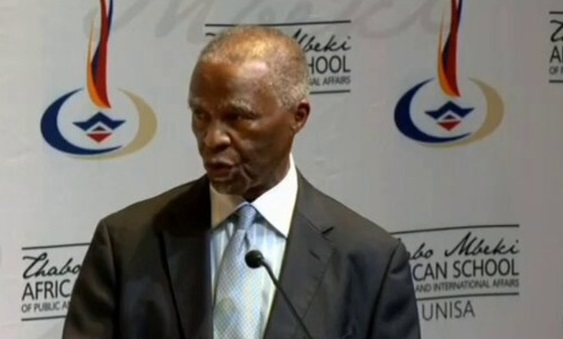A recent global issues forum at the University of South Africa (UNISA) became unexpectedly notable when former President Thabo Mbeki paused to publicly acknowledge Dr. Mbuyiseni Ndlozi, calling him “a distinguished South African” and “something of a superstar.” The moment, occurring on March 28, 2025, highlighted Ndlozi’s growing stature as an influential public intellectual following his transition from party politics to media and academia.
Ndlozi’s career trajectory has been remarkable. After serving as an Economic Freedom Fighters (EFF) MP and spokesperson from 2014 to early 2025, where he became known for his articulate advocacy on land reform and youth issues, he left partisan politics in February 2025. Since then, he has focused on academic pursuits—holding a PhD in Political Studies from Wits University—and recently launched a radio talk show, PowerTalk on Power 98.7, which began broadcasting in March 2025.
The UNISA dialogue, which addressed pressing global challenges like climate change and inequality, provided an apt setting for Mbeki’s recognition of Ndlozi. The former president’s comments seemed to acknowledge a generational shift in South African thought leadership, with Mbeki representing the liberation struggle era and Ndlozi emerging as a voice for post-apartheid youth. While some observers interpreted the moment as symbolic, Ndlozi appears to be forging his own path outside traditional political structures.
Ndlozi’s evolution from political firebrand to media personality and public intellectual reflects a broader trend of South African leaders seeking influence beyond party politics. His radio show promises unfiltered discussions about the nation’s future, aligning with the intellectual exchange valued at events like the UNISA dialogue.
Mbeki’s public endorsement carries weight, suggesting Ndlozi’s ideas are gaining recognition across ideological lines. However, as Ndlozi’s profile grows, he faces the challenge of maintaining substantive discourse amid increasing public attention. His ability to navigate this balance may determine whether he becomes primarily a media personality or develops into a more enduring intellectual force.
The UNISA moment underscores how Ndlozi continues to shape South African discourse, even as he redefines his role in the national conversation. As he builds his platform beyond party politics, his influence appears to be entering a new phase—one that could prove significant in the years ahead.






















